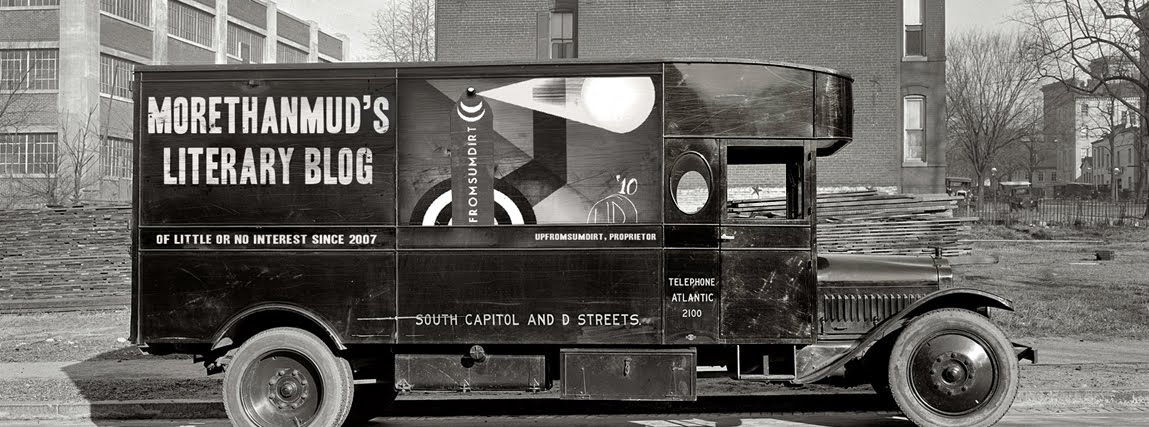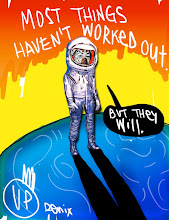(edit - 12/19/09 - i fckd up this whole article, referencing Poets and Writers instead of Publishers Weekly...
i'm such a sloppy journalist... i'll never work in this town. anyway, if you decide to get kneedeep into my 2 cents, then i just want'd you to know what you were gettn yourself into... plus, i think i credit Deborah Willis as the photographer when that credit actually belongs to Lauren Kelley! - i'm such a hack, i should work for Fox! ...now, onto the article...)
my its weird, this blog-on-blog crime... how easy it is to take personal soundbites (in this case, the 140 character limitations of an individual's twitter page) and embed them into contextual dissertations for or against any one particular position. we all do it... or will do it, the more we live our lives thru the world of virtual communication devices. as a semi-reformed conspiracy theorist, i've done it... will probably do it again real soon.
shit, might even be doing it right now!
folks (and good folks, i might add) have been tweeting about the latest cover of
Poets and Writers Publishers Weekly magazine where a woman is crowned with an afro of afro-picks - an image im personally deeply in love with as a love-child wannabe of the black arts movement. africa and african american imagery permeates every focal point of my conscious life... i am not 'me' without it. the photography of Deborah Willis could grace the walls of my home or office anytime, even if i can see how it might elicit critical glances from those driven to uphold and protect black images; every creative output deserves to have those in favor of AND critical of it as "art".
so depending on one's personal philosophy, one person's 'black pride' might be another's 'black cliche'.
neither perspective is wrong; in fact, in the right context, both can be 100% correct.
the challenge for us is knowing when to differentiate subjective arguments from objective ones.
many of us lack this ability - or if not 'lack' then at least arent fully aware of recognizing those differences when they occur. i think the internet has made us all rude(r) by nature. cultures raised on text and instant messaging have deferred their logistical abilities for egotistical ones: our surface glances of a subject matter are all that we require to fully understand the depths of that particular topic; we rush to infer and to judge the responses of our internet colleagues without fully engaging in a thorough debate on the topic at hand.
it's just the nature of the virtual beast... until it is no longer as 'virtual'... twitter commentary often winds up being outsourced to actual news agencies! often taking casual commentary completely out of context,
confusing 'social media' as 'professional (or confessional) press conferences'.
case in point, see
neptuniansoul where a debate is forming concerning the Ms. Willis's artwork and those critical of the contextual integrity of it as it is currently displayed on the cover of Poets and Writers magazine.
(the above is link is just a sample; no grudges for or against those operating that site or posting their replies to it... i'll probably be adding it to my blogroll before the night is done)
i understand this debate... it is sorely needed. its just sad that it takes slight critiquing of a subject to engage us deeply within it because we too often jump into 'left vs. right' positions when 'middle-ground' is needed the most. but what fun is finding the middle-ground on the internet? no one does it...
if i say "right" no one will ask me "why right?" - the most common, most immediate response is "no, left!"
and if my tiny quip makes it to the right rss feed, then good night! - ten words online already distort my full position on a subject by default and when simplified contortions are further distorted as they are digitally repeated, then compatriots and strangers alike will jump up to label me to the confinements of those distortions, "ron didnt like that one pic with black woman with the afro picks in her hair - therefore, ron dont like black women! that fucking sell-out... who the fuck is he and wtf does he know about being black anyway?"
folks will approach me with their asses already up on their shoulders expecting my behind to be up on mine...
its "first impressions by way of the rumor-mill"... its just the way society has devalued personal experiences when applied to the generalizations of the internet. by the end of the day, someone will have said i called someone 'a nappyheaded ho' because they went through 6-links-of-separation before finally getting to my actual responses.
such is life in this day and age; i dont like it, but i accept it... plus, counting pidjin, i can say 'yo mama' in 4 different languages.
anyway, what im tryinta say is this: everything seen, heard or felt is subjective to one's own personal experiences... my public philosophies might openly defy my personal opinions; if/when it happens, dont adhere so much to the discrepancy itself as you should the context under which such discrepancies might occur.
lets not poke each other in the eye before deciding to read our fine prints.
some of the women at the center of this debate are natural dreds and/or serious black feminists and yet others outside of the debate are weighing in and calling them straight-haired, blue-eyed wannabes. the more any issue spirals out into the virtual domains its larger waves soften into smaller ripples, but its those lesser ripples that are often commented on because its easier to focus on those ripples than the object that caused the splash to begin with.
a whole lot can be said in 140 characters or less... unfortunately, what is often left out is usually the position that defines us the most.








